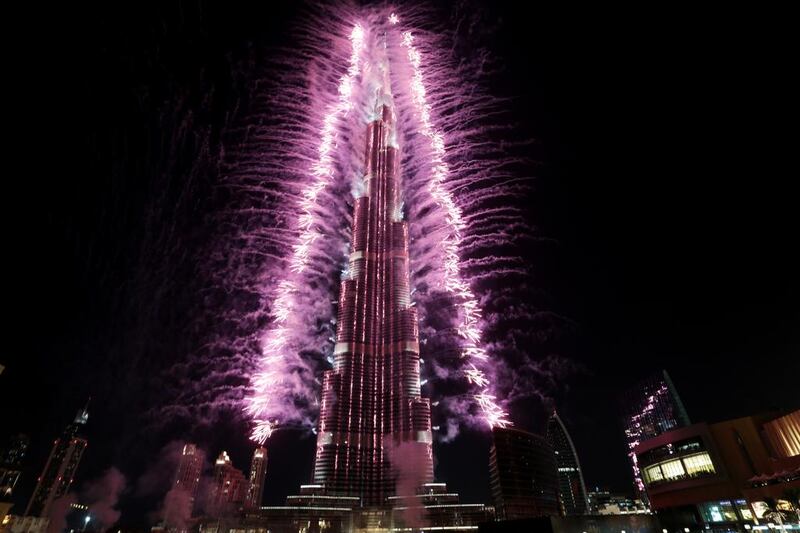As Dubai prepares to host the World Expo in 2020 and the economy continues on its growth path, the role of entrepreneurship is becoming increasingly important in the UAE.
Expected to draw 25 million visitors during its six-month course, the Expo will promote Dubai’s status as a truly global city with world-class infrastructure and a hub for global business.
As the past shows, a successful Expo can have a significant impact on the host city’s economy.
It has the potential to exhibit a nation’s strengths and talents on a global stage. A prime example is the Shanghai Expo in 2010. Held under the theme of Better City, Better Life, it was attended by a record 73 million people and promoted Shanghai as a thriving, global city.
The event not only showcased China’s economic success, it also encouraged new and long-lasting infrastructure projects that are still benefiting the nation.
Businesses in the UAE should be mindful of a few factors that will both create and complicate the opportunities generated in the lead-up to 2020.
Firstly, Dubai can expect a rapid surge in product demand leading up to and through the six-month event. Demand will then fall, right after the Expo, although probably not to previous levels.
The long-term economic effects of the event will slowly manifest as growth then rises back up to Expo levels, and even beyond. Anticipating and planning for these patterns of fluctuation is critical.
Additionally, as we can observe already, three weeks into the win announcement, Dubai will receive tremendous global attention in the lead-up. The event is expected to attract tourists from all over the world to the UAE. Likewise, media will be increasingly focused on the Expo and the region more broadly.
However, as the world’s eyes turn towards Dubai over the next seven years, local businesses will experience greater competition for this attention.
Preparing for and undertaking the Expo will require much work. Moreover the scale and nature of this work also means that this work will not simply be “business as usual”. The Expo will require new capabilities and ways of working. Likewise, the rapid escalation of demand may far outstrip the capabilities of incumbents.
At the same time, the growth presented by the Expo creates important opportunities, especially for entrepreneurs – or those with an entrepreneurial mindset.
There are a few ways that business leaders may best leverage the opportunities around the Expo.
First, local businesses can use growth related to it as an opportunity to build and fund long-term capabilities. Doing this right requires that managers identify sources of competitive advantage that are both rare and which provide value either by commanding a higher price or by facilitating lower costs. For example, businesses can focus on developing a particular type of high-quality service that can be expected to draw demand in the changed post-Expo market.
Alternatively, companies might use growth around Expo to invest in equipment and process improvements that reshape their cost curve and provide long-term efficiency gains.
The key here is that increased sales around the Expo provide a strategic opportunity for companies to manoeuvre themselves to more attractive market positions.
Second, managers should be careful in distinguishing between affordable investments and long-term commitments that reduce flexibility.
A company can and should pursue investments expected to yield ongoing advantages and that can be quickly paid for using growth related to the Expo. The danger that often befalls managers facing rapid growth, however, is making long-term commitments that assume growth is permanent.
For example, signing a long-term lease for much larger and more expensive office space, or taking out a long-term loan for new equipment. While past Expos are generally associated with a long-term impact on a country’s economy, the exact level of growth can often be unpredictable.
Accordingly, managers expecting to grow their size of operations should adopt practices that keep long-term fixed costs low, accepting that this may mean higher variable costs and lower per-customer margins.
A third strategy companies can use to leverage the Expo win is to use the event as an opportunity to be at the centre of the world’s media. This approach works best for services or products that are “truly unique” at the global level, such as luxury hotels and restaurants that have a distinctive identity and positioning.
Alternatively, start-ups or businesses that do not fit the stereotype of the “typical” Dubai business may also be well positioned for capturing such media coverage. As world looks towards Dubai in the years to come, companies operating in the region can piggyback on this media attention to enhance their global image.
Expo 2020 offers an evolving and active playing field for businesses. But it will also bring increased competition and dangers around long-term commitments.
By focusing on where they want their company to be both during and after the Expo, business leaders can best capitalise on the tremendous opportunities that the event will bring to Dubai.
Benjamin Hallen is an assistant professor of strategy and entrepreneurship at London Business School





